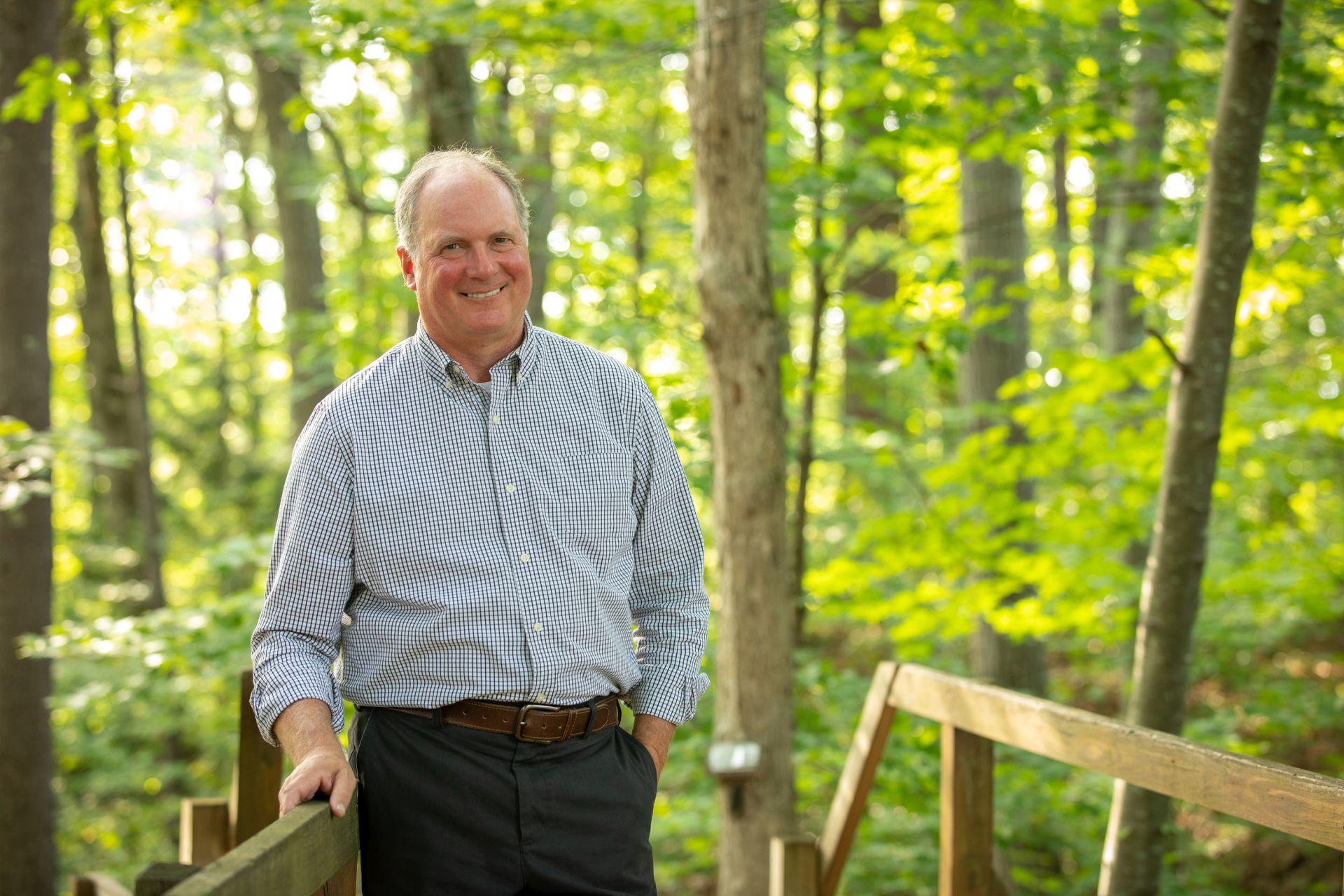Remarks by incoming President Jack Savage at the 118th Annual Meeting

Jack Savage spoke briefly upon being introduced to the membership of the Forest Society at the Annual Meeting Sept. 28, 2019.
So when I called my wife, Cheryl Kimball, who is here tonight, to tell her the board had voted to confirm my appointment as the President of the Forest Society, she congratulated me. She then reminded me that at home I will most assuredly continue to be Vice President.
As you can imagine, I am incredibly honored. The many emails and phone calls I’ve received over the last two weeks have driven home, for me, the importance of the Forest Society. I know well how much work we have to do, and I’m excited and energized, but I only recently fully appreciated the extent to which so many people want us to succeed. It is for that so many wish me well.
I want to thank Board Chair Deanna Howard, the Search Committee and the entire Board of Trustees for giving me this opportunity. To the extent I have enjoyed success in the last 14 years, it is because of the teamwork of my colleagues, in particular Will Abbott, Denise Vaillancourt, Brian Hotz and Susanne Kibler-Hacker. We’re not done yet, guys.
I have been asked many times about my vision for the Forest Society going forward. How will things change?
Honestly, before we can answer that question I need to do a lot of listening. Over the next few months I intend to do that—I want to hear what others think, including staff, board members and other stakeholders like those of you here tonight. I look forward to those discussions.
I will say this, however:
The world around us is changing. Our climate is changing, and technology is changing how we work and how we live. It is time for the Forest Society to evolve to meet the challenges those changes present.
We must:
1. Be more actively involved in the strategies and solutions to climate change. Forests, and our mission to perpetuate and manage them wisely—are more relevant than ever. We must be relevant, too, and we must lead, not follow.
2. We need to prepare ourselves for those changes and challenges by becoming a more sustainable organization. Financially, environmentally and demographically. We will endeavor to do that.
3. Our Forest Reservations represent our greatest opportunity. For engagement, for revenue, for meeting the needs of stewardship. We will understand those opportunities and endeavor to take advantage of them.
For years I have nodded in agreement as our board and committee members and other stakeholders have called for us to engage the next generation of conservationists. Ours has been a fear that no one would follow in our footsteps and that we must reach out and teach the next generation the lessons that made older generations revere the natural world.
But I would observe that we may have this all wrong. As evidenced by the 16-year-old who boldly lectured the United Nations on the urgency of climate change last week, and the conversations I have every day with our younger staffers, I think it is we elders who have more to learn from the youth of today.
It is not that we need to start teaching, it’s that venerable organizations like the Forest Society need to start listening. When we do, we will become a less even-aged stand of forest than what we see here tonight.
Lastly, I want to thank Jane Difley. Not just for hiring me all those years ago, but for patiently—mostly patiently—putting up with my unending push for more, better, different. I am in awe of the leadership she had provided, and I pledge to you that while I can’t guarantee the same level of success, I will work as hard as she has to advance our mission.
